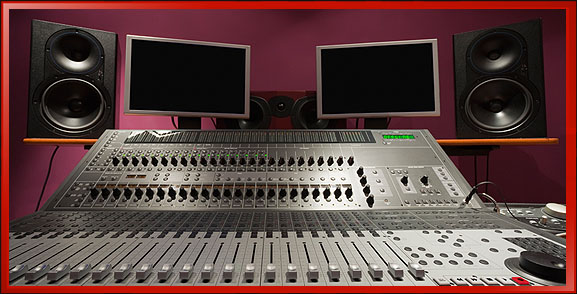Your project is ready for narration and you have finally settled on the voice talent you want. You haven’t used them before, but you have listened to their demos and their sound is a perfect match.
Hired!
You send them the script, they record it, send it back annnd…
…it’s completely unusable.
 What happened?
What happened?
The demo was so good. Their voice was ‘like butta', but, now it sounds like they’re talking with a mouth full of glass. Maybe some tweaks can be made in the editing room that would fix the issues, but you paid for clear, clean audio – not the off putting sound that you got back.
Dang, you’ve fallen into the Demo Trap.
Let’s start with some clarification:
What a demo IS and what a demo ISN’T?
A voice talent’s demo is a representation of what they can do. It showcases the different style of voices they can create for projects. Demos can be constructed of complete fiction — the talent was not the actual voice of that product or service. Or it can be snippets of projects they have worked on and cobbled together to make a demo. Or they can be a combination of both. You will never know for sure.

A voice talent’s demo isn’t always exactly what you will get back when you hire them. Many demos, mine included, are recorded and put together by someone other than the voice talent. And usually not in their own studio.
I work with a sound engineer in his studio to record and produce my demos. I want to focus on creating the sound I need for my demo, and not worry about the engineering part. This doesn’t mean that I can’t record, edit and send back your project from my studio – it just means I create my promotional materials elsewhere.
Voices change, recording environments change and demos are updated and changed regularly. Voice talents want you to listen to our demos and find the perfect voice for your project. You should expect to receive quality sound back from your chosen talent, but you can’t expect the sound to match their demos exactly.
So how do you avoid the demo trap?
Easy!
[embedit snippet=”ad1″]1. Always Get an Audition
If you haven’t worked with the voice talent before or received audio from their studio, always, always, always request an audition. Even if you love a their demo, get them to submit a quick take of your script in the style that really caught your ear.
You want to hear the raw stuff that you get in an audition. How was the quality of their studio? How was their sound without all the production behind it? Did you still like the voice?
After you review their audition, and only then, can you decide if you still love the voice.
Professionals are happy to do this anytime! Just ask. (If they say no…then move on. They are not pros and you don’t want to work with them.)
2. Get a Studio Sample
If you don’t need an audition because you are 100% certain that this is the talent for the project, just request a studio sound check. It’s like an audition except no other voice talent is submitting for the job. You are again checking for the voice, sound and recorded quality. This is also the time to give your talent all the format specifics for your project. Make sure that they can convert their files to AIFF. Let them know that you want all the takes, even the flubs, or if you want them to edit everything down and give you one or two beautiful takes.

Ask and yea shall receive. Or at least find out that the talent can’t deliver what you need for your project. Better to know now before getting too far in.
There are of course exceptions.
Here are two.
Exception 1. You two have an established working relationship
You don’t need an audition or sample if you have worked with the talent a lot. And often.
If you work with the talent more than 5 times a year, you know what they sound like and what they send back is good stuff, or you wouldn’t be working with them so often. So no audition or sound check is necessary.
Exception 2. An Audio Engineer is Monitoring the Session
If you are using an outside professional studio where the voice talent is just being the voice talent and not the audio engineer – then you can roll the dice. You can rely on the demo even more if you are going to be in the recording session with the talent, directing them to get exactly what you want.
Now Get Started
Demos are great tools and effective calling cards for voice talents, but they don’t always represent reality. Before you send out that congratulations email to a voice talent you haven’t worked with before, ask them to send an audition or studio sample of your script from their studio so you can check the quality of the finished audio to make sure it’s up to your required standard.
This small step will save you from landing in the Demo Trap!





